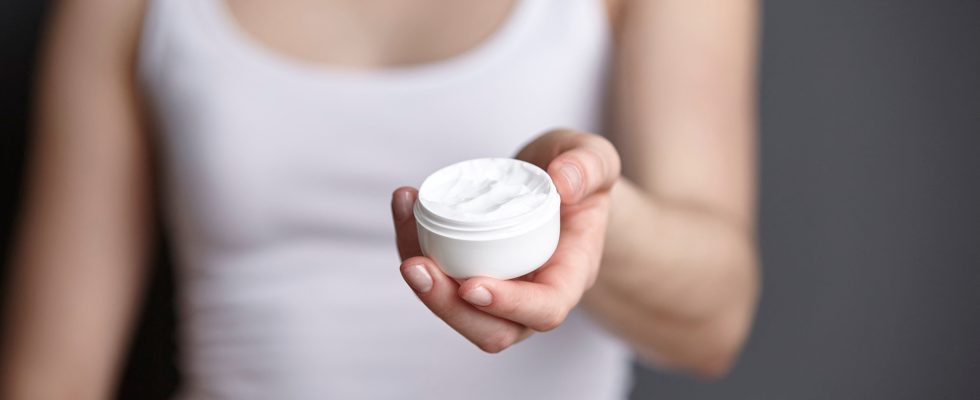Can a cream improve mood or banish negative thoughts? More and more cosmetic brands claim it. Spreading their product on the face would help, in combination, to “modulate emotions”, stimulate “pleasure neuropeptides”, or even reduce “feelings of pain”. To achieve euphoria on command, all you have to do is apply the ointment. These beauty products, grouped under the broad term “neuro-cosmetics”, have become more and more common in recent months, especially in online stores. A marked trend: it is one of the most important of the coming year, according to the analysis firm Mintel, one of the most renowned in the sector. And dubbed, too, by certain major national media, which do not hesitate to speak of a “revolution”.
There would be something if such effects were possible. The fact remains that, regardless of the bottle, drunkenness is not allowed when it comes to cosmetics. In an alert on the fraudulent nature of these claims published on February 16, the French Society of Dermatology is concerned about such a phenomenon. The institution recalls that according to international conventions in force, “cosmetics can only have an effect on the skin, appendages or mucous membranes”.
It is therefore impossible to claim direct effects on the brain. This is how the regulations in this area are made, particularly in Europe and France. “If this were (however) the case, this product should be immediately withdrawn from the market. Especially since we can raise the question of the induction of dependencies, specifies the learned society. Otherwise, it should be considered misleading advertising and such advertising should be prohibited.
“140 minutes more sleep”
Cosmetics can indeed arouse some emotions, thanks to the smell or texture. Who hasn’t felt joy after getting ready? It is also possible to use neuroscience to identify more precisely which gesture and which olfactory associations are the most delicious. And the moisturizing or soothing effect of cosmetics can help improve, “to a certain extent”, reminds the learned society, the quality of life of users.
Except that, in most of the cases recorded by the French Society of Dermatology, the claims used go far beyond these aspects and attribute real neurological effects to their active ingredients. Like this marketing director who says in Le Figaro that its mixtures have “quantifiable benefits on both mental and physical health” and would provide up to “140 minutes of extra sleep per week”.
Only medicines are allowed to have such influences. And they are only after having carried out much more rigorous studies than those carried out by the aesthetics industry, which almost never distinguishes the placebo effect, for example. “For a cosmetic to claim an effect comparable to a sleeping pill, it is therefore either very worrying or false,” underlines Laurent Misery, dermatologist at Brest University Hospital and specialist in psychodermatology.
The lexical field of dependence
The specialist, who participated in writing the alert, also notes allegations which, according to him, knowingly take up the lexical field of “dependence”. Like this start-up which wants to “build loyalty” thanks to its substances which are so effective on “well-being” that customers will inevitably return to them. Or those brands that incorporate nothing less than CBD, one of the molecules of cannabis, which if not considered psychoactive has effects on the nervous system.
The examples are numerous. Here, a Spanish brand sells sets of “mental emotherapy”, an emotional cream therapy which, according to the products, is capable of “reducing the effects of depression” by stimulating the right circuits in the brain. There, a Swiss company assures that its ointment allows an increase in serotonin and melatonin, two hormones also stimulated by the consumption of narcotics.
Numerous breaches of the rule
How can we explain such a mixture of genres? For Laurent Misery, it is possible that some entrepreneurs are unaware of the difference between the pleasure associated with the activity itself, “taking care of yourself”, and that induced by any substance. But, according to the specialist, others do not hesitate to play on this vagueness to lure their customers. Well-being is a recipe.
This alert, addressed to the authorities, health professionals and consumers, is far from being the only one on the subject. In November 2023, the DGCCRF already pointed out in a press release the great nonsense of allusions to the effects of cosmetics. In 2020, the latest assessment carried out by the fraud prevention institution, more than a third of the cosmetic products tested did not comply with their commercial claims. Stunning.
.
